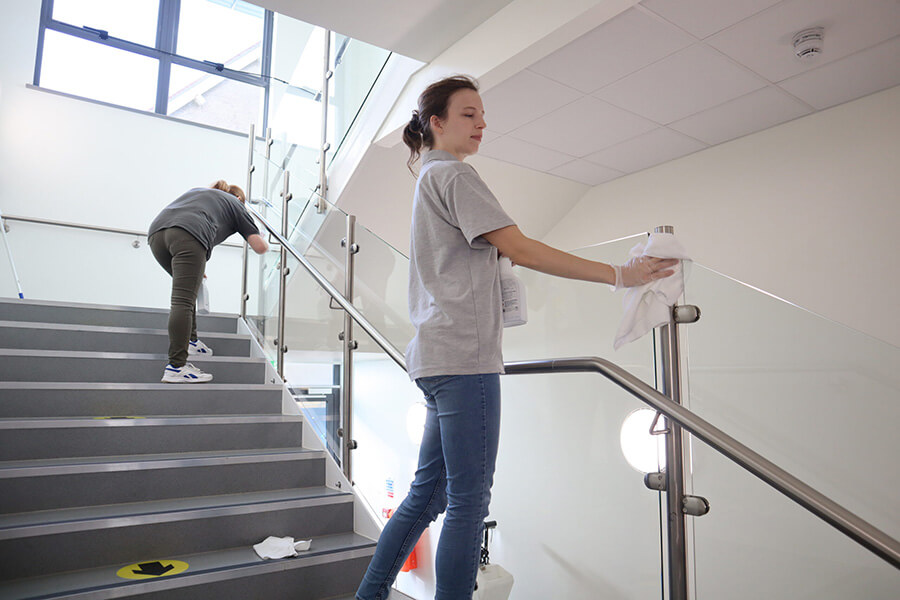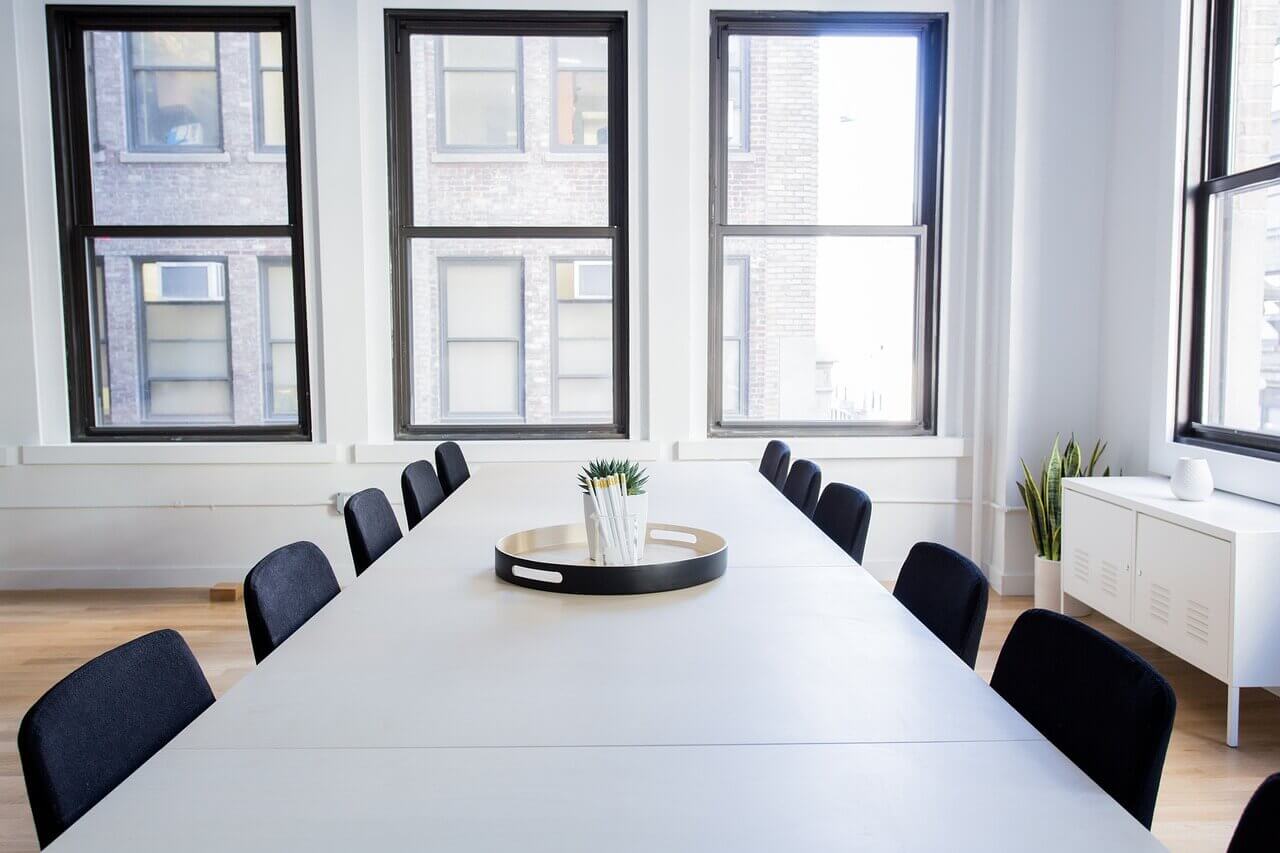An office deep clean is a comprehensive cleaning process that goes far beyond routine tidying to remove dirt, bacteria and hidden grime from every surface and space in the workplace.
Unlike a regular clean, which often focuses on visible areas like desks, floors and bins, a deep clean is more intensive. It includes disinfection of high-touch points, extraction cleaning of carpets, sanitisation of kitchen and washroom areas, and detailed cleaning behind and beneath furniture. Essentially, it reaches the spots that standard cleaning might miss, providing a level of hygiene that promotes both health and professionalism.
Why Is Deep Cleaning Important For Offices?
Offices are high-traffic environments where shared surfaces and close contact are unavoidable. Phones, keyboards, light switches, doorknobs and shared kitchen equipment all harbour bacteria and viruses, often without being visibly dirty. Over time, these spaces can accumulate a significant microbial load, which poses a risk to employee wellbeing.
A deep clean helps to reset the hygiene baseline. It is especially important after illness outbreaks, refurbishments or extended periods of disuse, such as following a holiday shutdown or a hybrid working period. In a post-pandemic world, expectations around cleanliness have shifted and businesses are now expected to go further to create safe working environments.
According to data from the British Cleaning Council, poor hygiene in the workplace contributes to around 30 million lost working days each year in the UK, much of it preventable through improved cleaning practices. A deep clean plays a direct role in reducing that risk.

What Areas Does An Office Deep Clean Cover?
A proper office deep clean is systematic and thorough. It typically includes:
- Workstations: Desks, monitors, chairs, keyboards, phones and other equipment are disinfected and wiped down, even in hard-to-reach areas.
- Floors and carpets: Depending on the floor type, professional vacuuming, steam cleaning or polishing is carried out.
- Kitchen areas: Fridges, microwaves, kettles, coffee machines, cupboards and worktops are deep cleaned and sanitised to remove food residue and bacteria.
- Washrooms: Toilets, sinks, tiles, taps, dryers and dispensers are scrubbed, descaled and disinfected to clinical standards.
- Windows and glass: Internal windows, glass partitions and any glass furniture are polished and sanitised.
- Air vents and filters: Often overlooked in standard cleans, vents and filters are cleaned to improve air quality and reduce the spread of airborne particles.
- High-touch surfaces: Light switches, lift buttons, door handles and stair rails are disinfected with attention to detail.
This is usually carried out by a professional cleaning team with the equipment, time and expertise to work methodically and effectively.
How Often Should An Office Be Deep Cleaned?
There is no one-size-fits-all answer as it largely depends on the type of business, the number of employees and how the space is used. However, most workplaces benefit from a deep clean at least once or twice a year, with quarterly cleans recommended for busier environments.
High-risk sectors, such as healthcare, finance and shared co-working spaces, may require monthly deep cleans. Offices that operate 24/7 or have a high level of client footfall might also need more frequent attention.
It is also worth noting that an office that receives regular deep cleaning often stays cleaner in between, making day-to-day maintenance easier and more effective.

What Are The Benefits Of Investing In Deep Cleaning?
There are both practical and psychological benefits to deep cleaning your office:
- Healthier staff: Reduced exposure to bacteria and allergens means fewer sick days and better concentration.
- Improved morale: A clean and fresh-smelling office creates a positive impression on employees and visitors alike.
- Increased productivity: Clutter-free and hygienic environments can reduce stress and help teams stay focused.
- Long term maintenance: Regular deep cleans help protect your investment in flooring, fixtures and equipment.
- Regulatory compliance: In some industries, cleanliness is part of meeting workplace health and safety standards.
The Bottom Line
An office deep clean is more than just a cosmetic fix, it is a vital part of maintaining a healthy, efficient and professional working environment. By going beyond surface-level cleaning and tackling the hidden grime and germs that accumulate over time, a deep clean helps to protect your workforce, boosts productivity and extends the life of your office space.
Whether scheduled seasonally or in response to specific needs, it is a smart and preventative measure that pays off in the long run!

